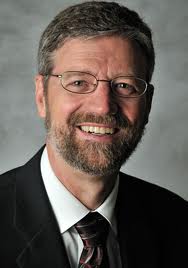By Ervin Stutzman
Although it’s often difficult for pastors or church leaders to admit it, they carry a good bit of social power as well as spiritual power in the congregation. Even the pastoral title or role conveys social power. When you add the power of the role to other forms of social power that many pastors carry in Mennonite Church USA, one can see why congregants often think of their pastors as being powerful people. That’s one reason why we as pastors and other church leaders can abuse our power without realizing it.
The two columns below can help us understand the differences in social power between different social groups. While you may disagree on some of the pairings, it is generally true that the social groups in the left column have more power than the social groups in the right column. Look over the two columns, and see which one best represents your social position.
More Powerful Less Powerful
Adults Children
Men Women
White People of Color
Wealthy Poor
Landowners Renters
Supervisors Workers
Conference Ministers Pastors
Clergy Lay
People without a disability People with a disability
Born in the U.S. Immigrants to the U.S.
Formally educated Not formally educated
Articulate Inarticulate
Born in well-respected families Born in little-known families
Teacher Student
Although not all persons in the groups represented in the right hand column are less powerful than all persons represented in the corresponding groups in the left column, these pairs convincingly portray reality as the majority experience it. The more groups with which one can identify in the left column, the more socially powerful one will be.
To experience the emotional weight of this social scheme, first list three or more privileges, responsibilities, or rights that accrue to persons in the left column that do not generally accrue to persons in the right column. If you have difficulty, ask a person represented by the right column to assist you. Secondly, name a time when you experienced the exercise of social power by someone else over you.
As Christian leaders, we may readily feel a sense of powerlessness in the face of difficult circumstances. Consequently, we may be tempted to deny the immense social power that we can exercise in the lives of others. We may even feel threatened by persons with less power who challenge our position or aspire to our role.
It is sobering to contemplate the history of religious leaders who used social and political power to reinforce the truth as they understood it. It was religious leaders who led the way to kill Jesus. They could not tolerate the threat which Jesus represented to their power over the people. When the church has striven for and achieved social and political influence, it has inevitably used that influence to force conformity on the people with less power.
Jesus was tempted to exercise power wrongly. When the devil approached him in the wilderness (Luke 4), Jesus resisted his offer to give him all the kingdoms of the world, with the accompanying authority and splendor. Further, he resisted the temptation to “show off” his power to create food by making bread from rocks and to overcome death by jumping from the pinnacle of the temple.
Jesus did not consider equality with God as something to be exploited. . .but took on the form of a slave, . . .humbled himself and became obedient to the point of death on a cross (Philippians 2:7-8, NRSV). The upside-down kingdom that Jesus inaugurated reverses many of the assumptions that we make about social power. If we are to avoid the mistakes of some well-intentioned leaders who have preceded us, we must diligently follow the example of Jesus. We must learn to exercise power with humility, fear of God, and a consuming love for those who live under our leadership influence.


